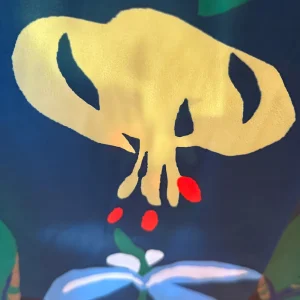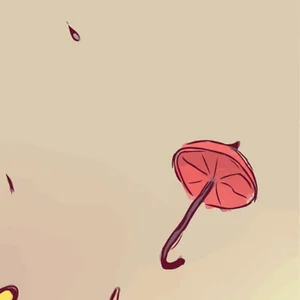Not too long ago I’ve read on social media “attention is the biggest asset” and I watched how over 160 comments reinforced this idea and explained how in the current context of our world even the most common slice of life can and should be, artfully, cleverly turned into a personal “brand activator.”
The post was meant as a “truth bomb” – something to anchor strategy and aspiration.
My thoughts drifted away from the whole story but lingered on one thing: attention is the most valuable asset.
One: Is it really? In what way? How do we know?
Two: Why and how do we keep reinforcing this?
Three: What if our obsession with being seen has blinded us to what we’re actually seeking?
It’s true that we are all drowning in this recurring theme: attention is the new currency – you either master the art or risk irrelevance. So we look for better ways to squeeze ideas out of any moment and use them to draw attention to ourselves, to hold the spotlight. We measure our life and worth in likes, comments, titles, and achievements that sound impressive and convincing, and we focus on creating a feed full of well-curated moments that scream, “I made it!” even when we don’t feel like we did.
Somewhere along the way, we started believing that the proof of our value lived outside of us, reflected back on approval and applause. Visibility seems to be the new virtue, and we chase it like it’s oxygen.
And the more we lean into this belief, the more we abandon ourselves and distort our values. We allow our moral compass to get small detours in the name of the “need to adapt,” and before we know it, we arrive at a destination we didn’t even have on our map to begin with. We are lost, exhausted, alone, and hungry in the middle of nowhere.
Is more visibility what we need, or is something else what we are looking for?
How did we even join this “need to be seen” marathon?
I asked over and over again: “Why?” There must be an initial source, and only when we find and understand it, we can explore potential solutions.
Survival. The hunger to be seen runs way deeper than our hyperconnected era. From infancy, we depend on others to keep us alive, and the baby’s first cry – not yet language, but already communication – introduces us to how babies instinctively know that being noticed is the first step to being fed, cleaned, comforted, and protected.
Neurological wiring. There is actual brain science behind our need to be seen. Mirror neurons. They are specialized brain cells that fire both when we perform an action and when we observe someone else performing the same action. For instance, when you watch someone smile, reach for an object or express pain, your mirror neurons activate as if you were doing those actions yourself. This creates the neurological foundation for understanding others’ actions, intentions, and emotions.
It gets even more fascinating. When others pay attention to us, our mirror neuron systems are engaged in a reciprocal loop: when people nod in understanding and mimic our expressions to some extent, it activates these mirror systems and creates a neurological reward. We literally feel “seen”.
When we feel ignored or socially excluded, the same neurons create a form of neurological distress; we are deprived of this fundamental mirroring experience that our brains are wired to expect and crave.
By the way, this information forms the foundation for mirroring, rapport-building, and leading techniques used in advanced sales and negotiation training programs. The sad part is that it works so well that, in the wrong hands, it’s been used for manipulative purposes.
Identity. This aspect alone has complex ramifications, and the conversation can go on forever. From infancy, our self-concept is shaped by how others respond to us. When we are consistently met with love, we inevitably internalize a sense of worth and security. If we encounter resistance, are ignored, or are misunderstood, we often end up questioning ourselves and creating patterns to prove our worth, sometimes in ways that overcompensate. If we only get attention when we perform specific roles ( the achiever, the quiet one, the rule follower, the caretaker, or even the rebel), we are likely to overdevelop those identities, even when they are not truly beneficial to us.
And then the adult quest to be seen becomes the continuation of a child quest: Am I OK? Will you still love and protect me?
Emotional longing. Here, the question becomes: Do we crave to be seen, or do we crave to be known, not as in fame but as in-depth, seen without distortion and loved without editing? Seen, accepted, and loved not for the curated self, not for the list of accomplishments, not for how attractive we are, but for the whole truth of who we are – raw, messy, unfinished?
“Unfinished,” I believe, is the word that captures the essence. Because we all fall into the trap of wanting to offer a specific image and convey a particular message that emphasizes a “finished’, perfect, flawless self. Yet all we are, and all we’ll ever be, is an ongoing, “unfinished” journey.
In this context, it’s easier to understand why all the likes, applause, praise, follow, you name it – they feel good, but they don’t last more than a blink: they validate the image, the surface, not the essence. And we instinctively know the difference.
Existential meaning. I thought a lot about this. And I have more questions than answers. What is the need to be seen?
In the midst of the noise and chaos of our daily existence, we may rush to the idea of vanity and insecurity manifestations. Dismiss and move on.
In moments of silence and reflection, we begin to consider nuances, science, upbringing, and implications.
But in stillness, other questions arise: Is it the longing for connection to something bigger, the longing for purpose, the fundamental longing to matter in the grand scheme of existence? We create art hoping it will outlast us, build monuments, have children, chase fame, or throw ourselves into causes – all attempts to establish our presence into eternity. Why? Beyond blind ego, why? Are we, maybe, trying to justify our existence and find the ultimate approval by the source of all being?
Is it possible that the human witnesses are just practice for this ultimate recognition by the very mystery that brought us into existence?
The tragedy isn’t that we want to be seen.
The tragedy is that in our desperation for visibility, we lose ourselves.
Shared with Love,
Gabriela
This article is part of a series exploring different angles and dimensions of this topic. If it resonated with you, sign up to be notified when the next piece becomes available.
I don’t pretend I KNOW. I write from my experience and from my heart, hoping that what I share will be the support someone needs on their journey. I reserve the right to be wrong and change my mind as I grow in my own understanding.
Have questions, comments or suggestions? Please never hesitate to reach out, I always reply to messages gabriela@experiencetruewealth.com
Join the subscription-based version of the blog to receive exclusive content and practical exercises that meet you where you are, whether you’re searching for clarity, courage, or simply a moment of stillness and guide you deep into your journey.






